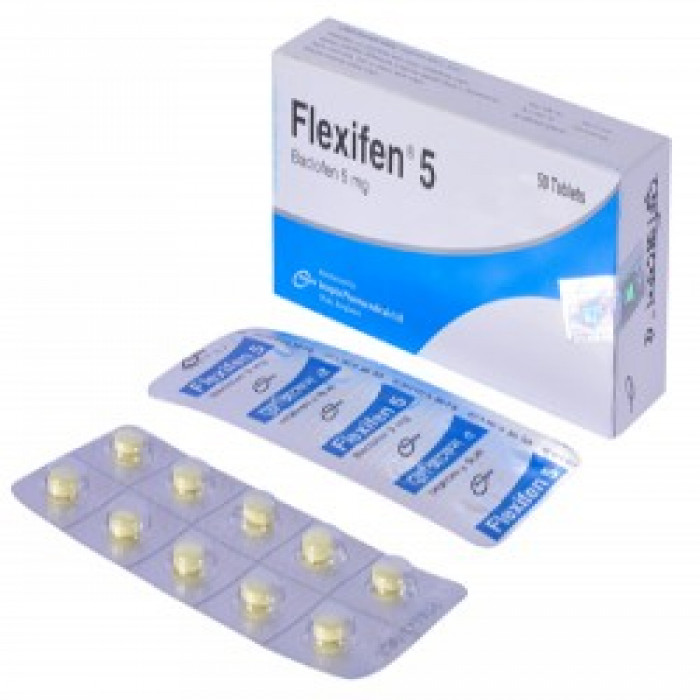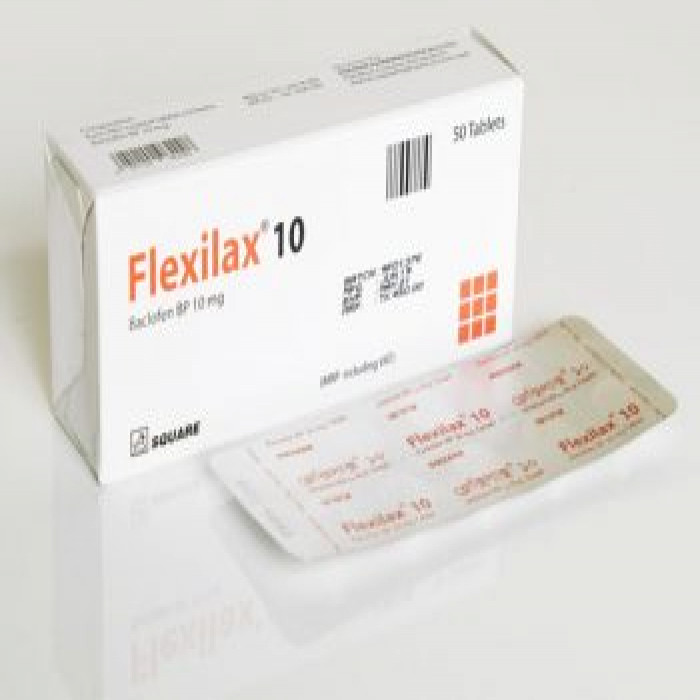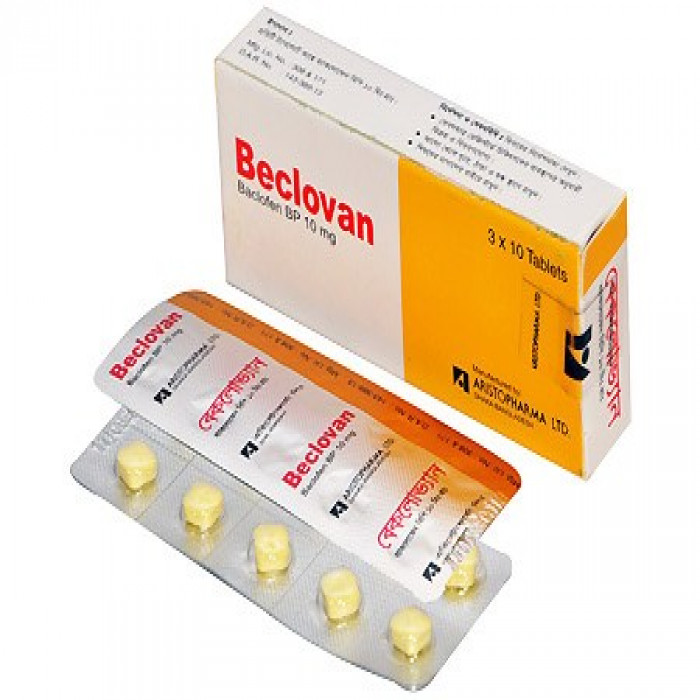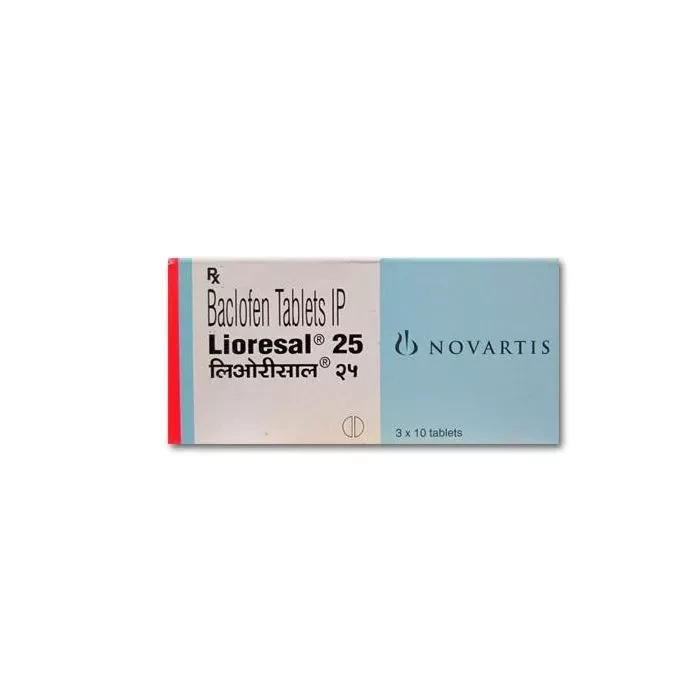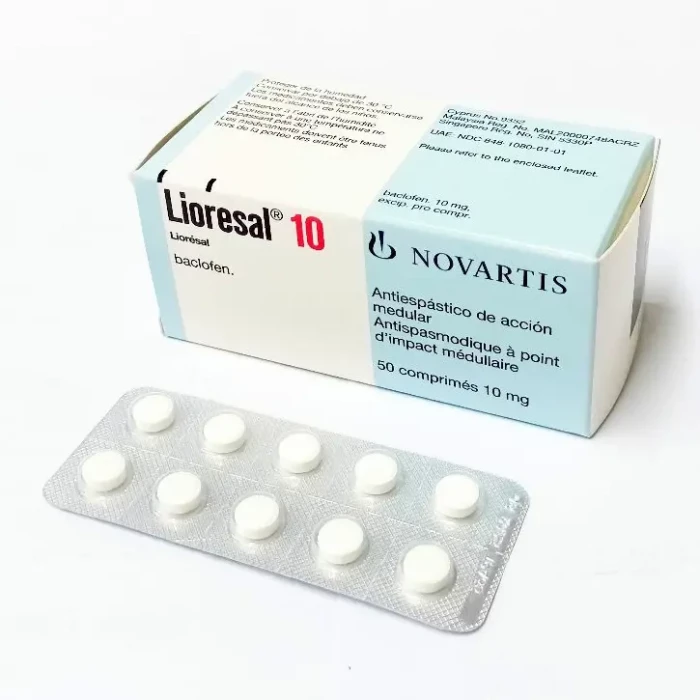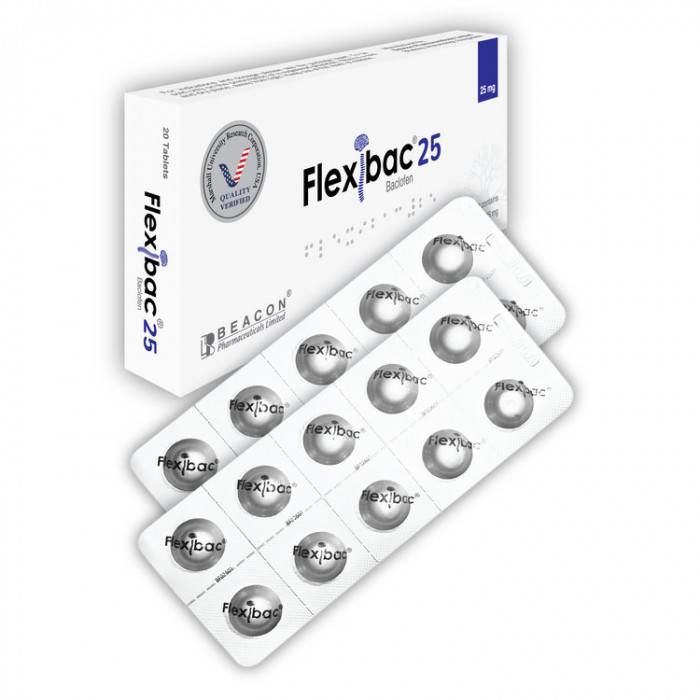
✔ 100% Authentic Product
👁️ Currently Viewing 508
Beklo is indicated in-
- Spasticity caused by multiple sclerosis instances.
- Flexor fits with accompanying pain, clonus, and strong rigidity
- Skeletal muscular fitness brought on by rheumatic diseases
- Spinal rope injuries and related conditions
- Cerebrovascular accidents, neoplastic conditions, or degenerative brain diseases

100% Genuine Products, Guaranteed
Safe & Secure Payments, Always
Fast, Secure & Efficient Delivery
Proper Packaging
 Cash on Delivery - All over Bangladesh
Cash on Delivery - All over Bangladesh Regular Delivery - 8-12 Hours, Dhaka City*
Regular Delivery - 8-12 Hours, Dhaka City* Regular Delivery - 24-48 Hours, All Over Bangladesh*
Regular Delivery - 24-48 Hours, All Over Bangladesh* ফ্রি ডেলিভারি! - ১৪৯৯ টাকা+ অর্ডারে ঢাকা
শহরে ।
ফ্রি ডেলিভারি! - ১৪৯৯ টাকা+ অর্ডারে ঢাকা
শহরে । ফ্রি ডেলিভারি! - ২৯৯৯ টাকা+ অর্ডারে ঢাকার
বাহিরে ।
ফ্রি ডেলিভারি! - ২৯৯৯ টাকা+ অর্ডারে ঢাকার
বাহিরে ।
✅ Description:
Baclofen is an anti-spastic agent and muscle relaxer used to treat muscle symptoms such as pain, spasms, and stiffness caused by multiple sclerosis or spinal cord lesions, as well as symptoms related to spinal cord injuries or diseases.
- Not approved for individuals under 12 years old.
- Contraindicated in those with allergies to Baclofen or who are breastfeeding.
- Not safe during pregnancy; consult your doctor if pregnant or having kidney disease, a history of stroke or blood clots, epilepsy, or taking narcotics.
- Typically taken three times a day, with or without food.
- Do not discontinue abruptly; taper off under medical supervision to avoid withdrawal symptoms like seizures and hallucinations.
- May affect muscle tone, balance, and ability to perform activities.
- Use caution when driving or performing tasks requiring alertness.
- Frequent small meals or lozenges can reduce gastrointestinal upset.
- Report any unresolved insomnia, painful urination, changes in urinary patterns, constipation, or persistent confusion to your doctor.
Safety Advices

Alcohol
UNSAFE
Consumption of alcohol is not recommended during treatment with Beklo 25mg Tablet due to the increased risk of side effects such as dizziness, drowsiness, and difficulty in concentration.

Pregnancy
CONSULT YOUR DOCTOR
Beklo 25mg Tablet is not recommended for use during pregnancy unless necessary. Consult your doctor to understand the benefits and potential risks before taking this medicine.

Breastfeeding
CONSULT YOUR DOCTOR
Beklo 25mg Tablet may pass into the breastmilk in small amounts. Hence consult your doctor before taking this medicine if you are breastfeeding.

Driving
Beklo 25mg Tablet may cause blurred vision, dizziness, sleepiness, tiredness, and weakness. Hence avoid performing activities that require mental alertness, such as driving or operating machines, if you experience such symptoms after taking this medicine.

Kidney
SAFE IF PRESCRIBED
Beklo 25mg Tablet should be used with caution in patients with kidney disease. A dose adjustment of Baclof Liquid Strawberry may be needed. Please consult your doctor.

Liver
SAFE IF PRESCRIBED
Beklo 25mg Tablet should be used with caution in patients with liver disease. A dose adjustment of Baclof Liquid Strawberry may be needed. Please consult your doctor
✔️ Uses of Beklo 25mg Tablet
- Manage muscle spasms (painful muscle contractions)
✔️ How does Beklo 25mg Tablet work?
Beklo 25mg Tablet works by inhibiting the release of certain chemicals in the brain and spinal cord, which helps to relieve pain and improve muscle movement.
✔️ Side Effects of Beklo 25mg Tablet
- Common: Drowsiness, dizziness, muscle weakness, constipation.
- Others: Ringing in the ears, skin rashes, mood changes, confusion, nausea, vomiting, headache, painful urination.
✔️ Quick Suggestions:
- Take Beklo 25mg Tablet as instructed by your doctor.
- Drink an adequate amount of water to avoid stomach discomfort.
- Do not break, crush, or chew the tablet. Do not take in larger or smaller amounts than prescribed.
- Do not stop taking this medicine without consulting your doctor, as it may cause withdrawal symptoms such as hallucination, confusion, seizures (fits), etc.
- Avoid consumption of alcohol during treatment with this medicine as it may increase the risk of side effects such as dizziness, drowsiness, etc.
✔️ Indication of Beklo 25mg Tablet
Baclof is used to reduce and relieve muscle spasms associated with conditions such as cerebral palsy, multiple sclerosis, spinal cord injuries/diseases, and other nervous system disorders.
✔️ Pharmacology:
Baclofen inhibits both monosynaptic and polysynaptic reflexes at the spinal level by stimulating GABAB receptors, which inhibits the release of glutamate and aspartate. It may also produce CNS depression at intraspinal sites and exerts an antinociceptive effect.
✔️ Dosage & Administration of Beklo 25mg Tablet
- Adults & Children over 10 years: Start with 5 mg 3 times daily with or after food, gradually increasing. Maximum dose is 100 mg daily.
- Children under 10 years:
- 12 months to 2 years: 10-20 mg daily
- 2 to 6 years: 20-30 mg daily
- 6 to 10 years: 30-60 mg daily
✔️ Interaction
- Increased sedation with CNS agents, alcohol, or synthetic opiates.
- Increased risk of respiratory depression.
- Antihypertensive treatment may require dosage adjustment.
- Potentiation with tricyclic antidepressants, leading to pronounced muscular hypotonia.
- Mental confusion and agitation with levodopa and carbidopa in Parkinson’s disease.
- Enhanced CNS depressant effects with MAO inhibitors.
- Synergistic effects with magnesium sulfate or other neuromuscular blocking agents.
✔️ Contraindications
Hypersensitivity to any component of Baclofen.
✔️ Pregnancy & Lactation
- Pregnancy Category B3: Use only if potential benefits outweigh possible hazards.
- Lactation: Excreted in breast milk but considered safe in small quantities.
✔️ Precautions & Warnings
- Lower doses for patients with impaired renal function or on chronic hemodialysis.
- Use cautiously in patients with psychotic disorders, epilepsy, peptic ulcers, cerebrovascular diseases, or hepatic/renal/respiratory failure.
- Monitor respiratory and cardiovascular function in cardiopulmonary disease.
- Neurogenic bladder disturbances may improve; monitor for acute urine retention in sphincter hypertonia.
- Patients with stroke show poor tolerance and benefit.
- Perform periodic laboratory tests in hepatic diseases or diabetes mellitus.
✔️ Storage Conditions:
- Store below 30°C, away from light and moisture.
- Keep out of reach of children.
Disclaimer:
ePharma sole intention is to ensure that its consumers get proper
information as musch as possible. Although we do not guarantee the
accuracy and the completeness of the information that provided and
here information is for informational purposes only.
The information contained herein should NOT be used as a substitute
for the advice of a qualified physician. This may not cover
everything about particular health conditions,
lab tests, medicines, all possible side effects, drug interactions,
warnings, alerts, etc. Please consult your healthcare professional
and discuss all your queries related to any disease or medicine. We
intend to support, not replace, the doctor-patient relationship.








